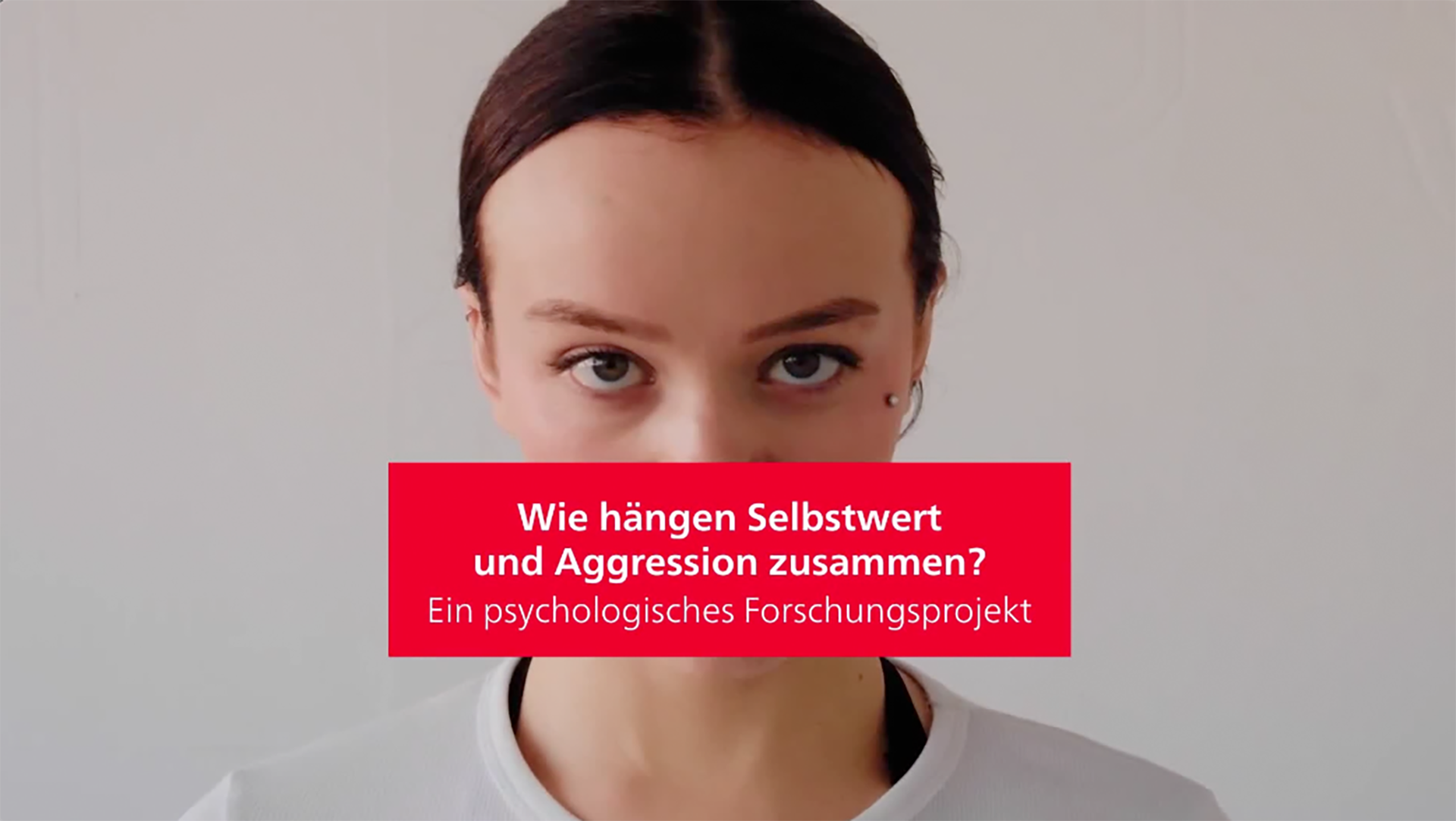Psychology
How are self-esteem and aggression connected?
... is one of the questions psychology has yet to answer conclusively. However, with the prospect of findings that will benefit society, Bernese psychologist Ulrich Orth is taking it on in a challenging research project.
What are you trying to find out, Mister Orth?
The aim of the research project is to better understand how the human sense of self-esteem is connected to the tendency towards aggression. Opinions on this vary greatly in the research literature. On the one hand, it is argued that low self-esteem is a risk factor for aggression. For example, it could be that people with low self-esteem engage in bullying behavior because they believe it increases their social status in a group.
On the other hand, it has been suggested that high self-esteem in particular – which should be useful and preferable – is a characteristic that is associated with aggression in some people. In other words: self-esteem could have a dark side.
So the question is: If children, adolescents and adults stand out because of aggressive behavior, is that due to a lack of self-esteem or rather excessively high self-esteem, or is the explanation more complex?

Why is this important from a scientific point of view?
Since there are such contradictory assumptions about how self-esteem influences the tendency towards aggression, it is important to try to gain a more empirically sound understanding.
To this end, we are conducting a comprehensive meta-study as part of the project, where we combine data from all available longitudinal studies and from that draw solid conclusions. In addition, we are using data from an ongoing, large-scale longitudinal study that is being conducted over several years and involves 600 families from the US. With that we can test hypotheses that cannot be answered by the meta-study. For example, that good self-esteem usually leads to less aggression and that only extremely high self-esteem is problematic.
“Aggression is a significant problem in many societal contexts, sometimes with serious psychological, social, health and material consequences”
Aggression is a significant problem in many social contexts, for example in the family, in partnerships, at school or in the workplace. In view of the sometimes severe psychological, social, health and material consequences for victims of aggression and society as a whole, it is essential to better understand the factors influencing aggression.
There are many factors that can contribute to aggressive behavior. If a lack or excess of self-esteem is a promoting factor for aggression, we would like to use this project to contribute knowledge that can help to better explain the occurrence of aggression and make measures to reduce aggression more effective.
What fascinates you personally about this research project?One aspect that fascinates me about the research project is that it deals with questions that have been discussed in psychology for a long time – so far without successfully finding definitive answers. So the aim is to test these questions more systematically than before and with the help of a larger database than has previously been possible.
The research questions are also embedded in the research on the more general question of whether human self-esteem is merely a passive consequence of favorable or unfavorable life circumstances or if self-esteem plays an active role and influences central areas of life.
What is the biggest challenge in your research project?An important challenge in the meta-study is identifying the relevant longitudinal studies. To get meaningful results, it is important to compile the data as thoroughly as possible.
Further important but interesting challenges can be found in data analysis. We will use new statistical models that allow us to draw better conclusions regarding the cause-effect-relationship than before. Specifically, the question is not only whether low self-esteem and aggression occur simultaneously, but whether one actually triggers the other.
How is the research project funded?The research project is funded by the Swiss National Science Foundation and has been running since May 2023. A doctoral student and I are working on sub-projects at the University of Bern. For one of these sub-projects, we are also working with a project partner in the US who is running the aforementioned longitudinal study with families at the University of California in Davis.
This article also appears in the "Anzeiger Region Bern".
About the person
Ulrich Orth
Ulrich Orth is professor of developmental psychology at the Institute of Psychology at the University of Bern. His research interests are focused on the development of self-esteem and personality development. In 2020 Orth was awarded the Mid-Career-Award der European Association of Personality Psychology.
Contact: ulrich.orth@unibe.ch
Subscribe to the uniAKTUELL newsletter

Discover stories about the research at the University of Bern and the people behind it.
